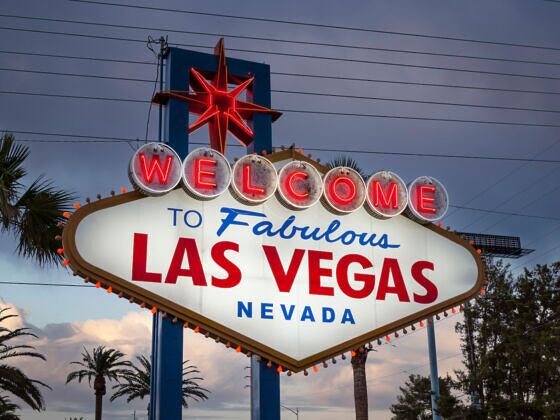When people talk about financial safety in Vegas, they’re usually talking about knowing when to walk away from the blackjack table. Recently, however, protecting your finances in Sin City has taken on a whole new (and even more serious) meaning. Over the past few weeks, some of Vegas’s biggest hotels and casinos were hit by a group of hackers who brought down gaming machines, disrupted websites, and stole a variety of personal guest and employee data at both MGM and Caesars, according to TechCrunch. The breach affected properties not only in Vegas, but the companies’ holdings around the world.


What Happens When a Massive Las Vegas Casino Gets Hacked? Resorts and Guests Are Finding Out Right Now.
The hacking group, called Scattered Spider, consists of US and UK-based hackers, and they’ve been known to target telecommunications and business process outsourcing companies. By disrupting systems and extracting user data, they’re able to essentially hold companies like MGM for ransom, threatening to keep operations offline and leak sensitive data. And that’s exactly what they did.
Fortune reports that Caesars ended up paying tens of millions of dollars to the hackers, while MGM’s negotiations are still ongoing. Hackers did demand a ransom from MGM, though it’s not clear exactly how much, or if that ransom has been paid. MGM is currently five days into the cyberattack, dealing with downed elevators, broken slot machines, and compromised guest data. All MGM properties are still dealing with the breach, with guests reporting strange credit card charges.
The hacking of some of the largest hotel and casino groups in Las Vegas had a ripple effect at numerous properties that impacted both workers and guests. Properties like Bellagio, Aria, and Cosmopolitan shut down internal networks. Guests couldn’t use ATMs, and room keycards stopped working along with electronic payment systems and some elevators. In rooms that are controlled by an electronic dashboard, guests couldn’t do things like close the blinds or use the TV or phone. Nearly every action that one would normally take at a hotel and casino slowed or came to a complete halt as workers relied on pen and paper as well as phone reservations only.
That’s not how anyone wants their Vegas vacation to end.
@vegasstarfish MGM Resorts are being held hostage by cyber security hackers impacting resorts worldwide. Here is an update on the hackers, everything you need to know and most recent developments at Aria, Bellagio, Excalibur, MGM Grand and all Las Vegas resorts. #vegas #lasvegas #vegasstarfish #cybersecurity #hackers #vegasresort #mgmresorts #vegaslocal ♬ Spooky music box bell horror BGM – Notzan ACT
Even once the hacking incident is in the rearview mirror, it raises real concerns about protecting your sensitive information while traveling – not just to Vegas, but everywhere. How do you keep your personal data safe in an industry constantly demanding credit card numbers, passport verification, and internet connectivity. Here are some tips to help keep you safe on your next trip.
Digital safety steps you can take while traveling
We live in a connected world where data — even sensitive data — is passed around with ease. Companies ask for credit card info and passport images via email, and travelers are expected to connect to public hotel WiFi without a second thought. While it’s probably impossible to leave no digital footprint while traveling, there are ways to minimize your risk, and maintain a modicum of privacy and security.
When it comes to using public WiFi, for example, it pays to use a VPN (Virtual Private Network). VPNs are kind of like incognito mode, making your network connection private and hiding your location and real IP address. VPNs can help keep your financial information safe if you’re shopping online on a public network, or logging into a bank account.
There are other ways to protect yourself online, too, especially while staying in a hotel. Circumvent the need to use your personal computer entirely by using the hotel’s devices instead. Instead of watching Netflix on your personal laptop, watch on the hotel TV. You can also get a mobile hotspot, like a Jetpack, which supports multiple devices, and can be perfect for simple tasks like checking email or web browsing. Or, of course, you could just stick to mobile data. Any in-room purchases should also be made via the front desk, rather than entering your credit card info into the hotel room TV or other devices.
It’s also a smart move to contact your banks before your trip and let them know where and when you’ll be traveling. Some financial institutions are pretty good about automatically tracking travel and flagging any suspicious activity, but giving notice provides an extra layer of security. If your bank knows exactly where you are, there’s less likelihood that those fraudulent purchases will slip through unnoticed if your credit or debit card is compromised. It’s also a better idea to use a credit card, rather than a debit card, as purchases are easier to track and money easier to restore. And of course, if you’re really concerned with security, you can always use cash to pay for hotel rooms and other resort amenities, so there’s no credit card on record at all.